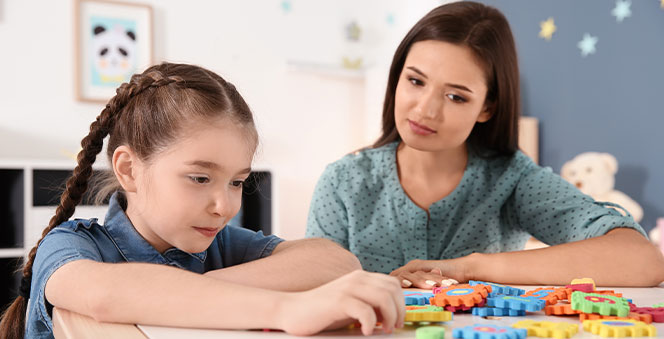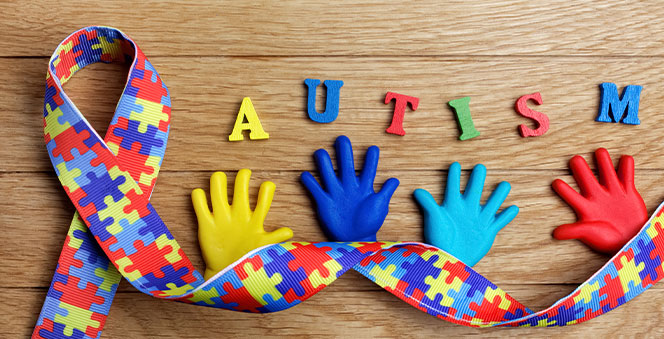Autism Spectrum Disorder (ASD) is a condition that impedes a child’s development. It impairs or hinders how youngsters connect and speak with others. The confusion is known as a range issue since youngsters can be anyplace on the autism spectrum disorder depending on how severe their symptoms are.
Youngsters with ASD begin to show side effects at an early age. The side effects stay during adolescence and adulthood. Scientists & Researchers don’t have the foggiest idea of why some kids end up on the autism spectrum. It is widely thought that the condition might be genetic but it is the environment a child grows up in which triggers this condition.
Children with autism experience difficulty in relating to others. They often cannot make eye contact. They keep to themselves. They may appear to be uninterested in interacting with family or school mates. Surprisingly, a few kids with ASD may love to continue chatting with relatives, companions, and even outsiders about a topic they are interested in. The issue is that they may discuss it excessively long. They may speak just about that one subject which makes others uncomfortable and make them want to avoid the kid.


- Trouble using and comprehending language or certain parts of the language, for example, mockery, sarcasm, and non-verbal communication.
- Unusual or extreme response to different sensory inputs. For instance, a vacuum cleaner may sound excessively noisy, a smell might be extra solid, or the vibe of something might be extra bothersome.
- They need to do things in pattern and anything that doesn’t follow a set rule or happens out of the ordinary tends to make them agitated and confused.
- Trouble perceiving or understanding someone else’s emotions.
- Difficulty chipping away at or taking an interest in exercises with no clear ending (e.g., an open-ended writing activity, a class lecture)
- Difficulty changing between one activity to another, particularly if they need to change from something enjoyable to something not arduous.
- Difficulty in engaging in any activity which does not come with a set of clear instruction or struggling to make decisions on their own when instructions or guidance is not available.

- Be predictable with your youngster. Continually practice at home similar activities or things he/she has mastered during therapy or counseling.
- Have a pre-arranged timetable for your kid and work according to it. Autistic children perform way better when they are on a well-defined routine with particulars that are set in stone.
- Appreciate your kid when he/she performs well in an activity. Positive feedback goes a long way with these kids.
- Keep a place in your home for your kid to relax, this would also be their safe place.
- Keep a keen lookout for non-verbal cues and understand them to better communicate with your child.
- If your kid acts in an unruly manner and throws fit, instead of chastising them understand the reasons behind it.
- It is likewise critical to be perceptive of your youngster’s conduct, the triggers that influence them antagonistically, the things that they would appreciate, their qualities, shortcomings, and so on.
- As a parent, you should likewise know the best type of learning for your youngster. Above all, research well and get a good therapist for your kid. Try not to postpone in beginning the essential treatment.
- Be it, specialists, or educationists, parents ought to genuinely share their thoughts and opinions with therapists and teachers so that customized training programs can be made for your child.
- Always read, connect with specialists and teach yourself about Autism Spectrum Disorder
- It is critical and noteworthy for parents and therapists to work in coordination to assist the kid. This guarantees the kid showing signs of improvement.




